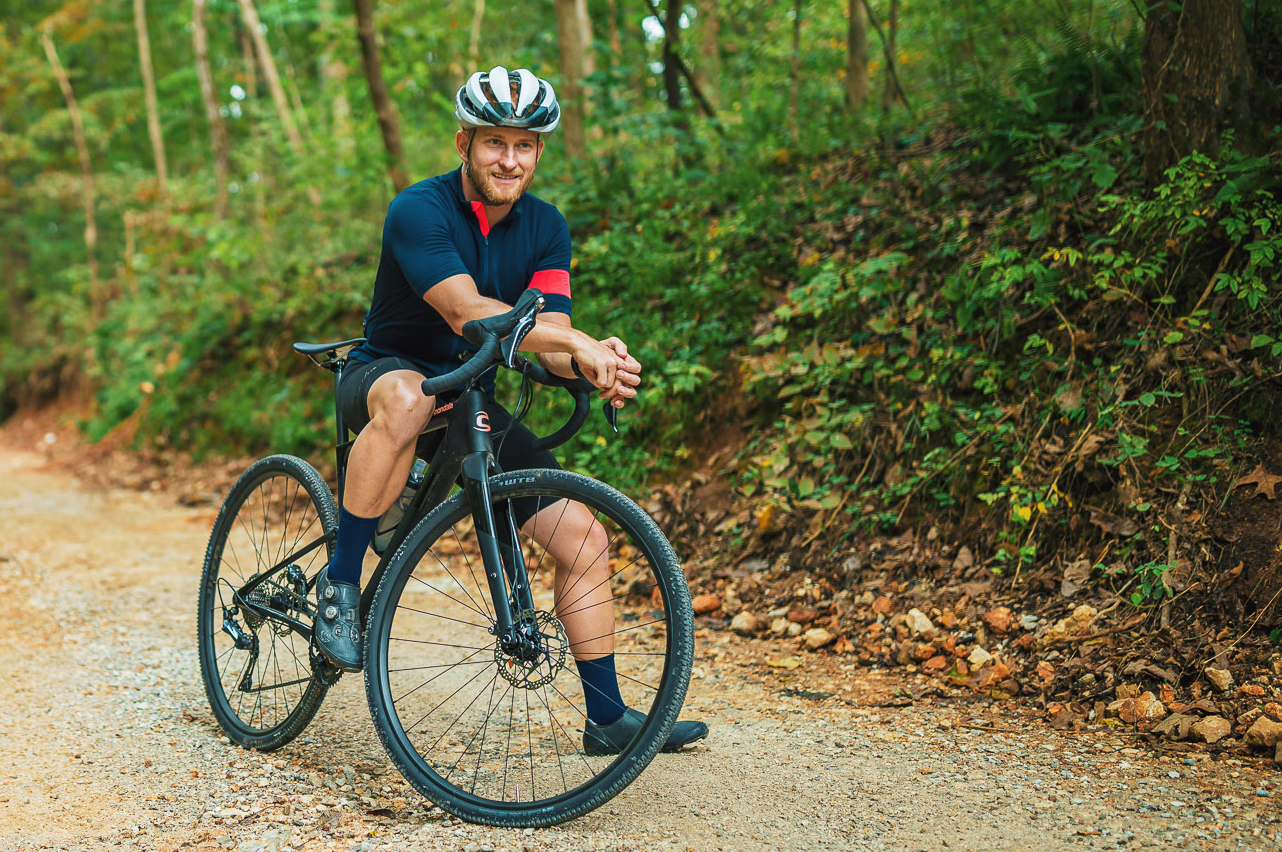The words ‘race’ and ‘fat bike’ might seem oxymoronic to some, but the recent surge in winter fat bike races in North America shows there’s a market for high-performance fat bikes. Salsa Cycles introduced the lightweight, aluminum Beargrease last year, and it’s no secret the company has been hard at work developing a carbon version.
BikeRadar had the opportunity to take a pre-production prototype of the carbon Salsa Beargrease for a brief spin along the shores of Lake Superior last weekend. It’s no exaggeration to say it’s unlike any fat bike currently on the market.
While our ride was no more than 20 minutes long, we racked up enough saddle time to form some initial impressions. First, the bike is deceptively light in terms of actual mass and handling characteristics. It weighed 11kg (24.25lb) with pedals on our digital scale. The SRAM XX1 build (more on that below) keeps the weight in check, as do the 65mm-wide Surly Marge Lite rims.
Many fat bikes have a lethargic steering feel that takes time to get accustomed to. It can take a lot of force to initiate a turn, and just as much steering input to bring the front wheel back in line. Their copious rotating mass and the claw-like ability of 4in-wide tires means they’re often reluctant to change direction with haste.
That feeling was nearly absent on this carbon prototype. In fact, it didn’t ride that differently from a 29er trail bike. While the rims and tires are light by fat bike standards, the secret to the Beargrease’s light steering feel is probably a result of fork offset. Salsa’s engineers were tight-lipped on the subject. The only hint we could pry loose was that product development engineer Pete Koski “wanted to build a fat bike that didn’t handle like a fat bike”.

Salsa's Beargrease carbon prototype is light and agile by fat bike standards
Fat bike features
Salsa is not the first company to develop a carbon fat bike, but it appears to have incorporated several features that could put the Beargrease ahead of the pack.
If any type of bicycle is crying out for a stiffer, more secure axle interface, it’s the fat bike. Massive tires and wide rims place a lot of leverage on traditional quick-release skewers. This frame has thru axles at both ends: a 15mm RockShox Maxle up front and a 12mm in the rear. We didn’t get a chance to measure axle spacing, though on the aluminum Beagrease it’s 135mm wide in front and 170mm wide at the rear.

Does the Maxle thru axle hint at the development of a RockShox fat bike suspension fork?
In addition to thru axles, the other novel features are the bottom bracket and crankset. The carbon Beargrease uses a press-fit style BB that appears to be a wider version of BB92. Going off what we know about the bike’s aluminum counterpart, which uses a threaded, 100mm-wide bottom bracket shell, it’s very likely that the carbon prototype BB has a width in the neighborhood of 120mm, to account for the internal bearings.
SRAM introduced two fat bike-compatible cranksets in February, at the X9 and X5 levels. The XX1 crankset on this Salsa Beargrease hints at things to come later this year. A 1x11 drivetrain makes perfect sense for fat bikes, as the front derailleur and rear tire are often competing for the same real estate.

It appears that an XX1 crankset with a longer, fat bike-friendly spindle is on the way
Full-suspension fat bike on the way
A company spokesperson confirmed that Salsa is moving forward with its full-suspension fat bike project. Yes, you read that correctly. Salsa teased the behemoth on its blog early last year, and feedback was overwhelming but the project appeared to come to a standstill.
The source of the delay appears to have been two-fold: the incorporation of Dave Weagle’s Split Pivot suspension into the design, and the lack of suitable suspension forks from the top manufacturers. This is pure speculation, but the fact that SRAM is producing fat bike components could signal that its suspension arm, RockShox, will fill the void in the near future.
We’ll keep our eyes peeled for this one – not that it should be hard to spot… In the meantime, for more information on Salsa products see www.salsacycles.com.















